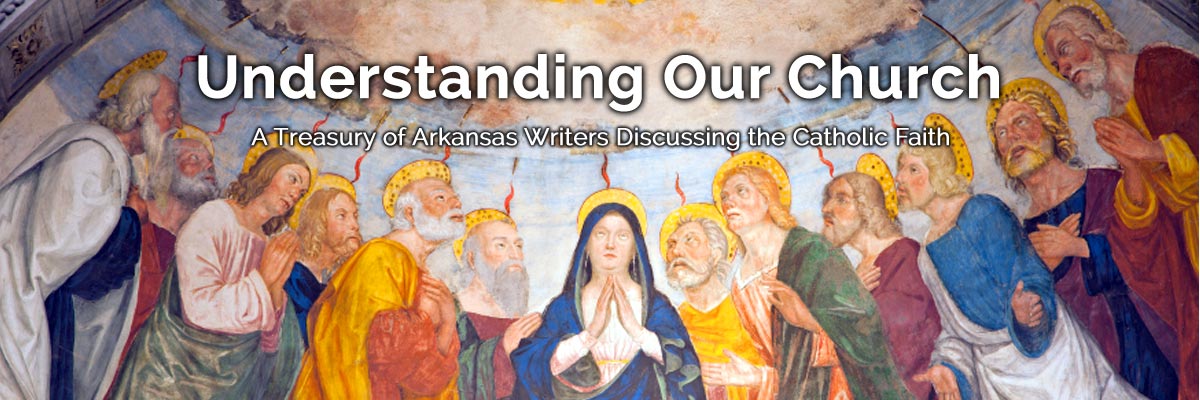Official Website of the
Catholic Diocese of Little Rock
Understanding God’s mercy helps us celebrate Year of Mercy
Published: July 9, 2015
By Deacon Chuck Ashburn
Director of Faith Formation
On the second anniversary of his election to the pontificate, Pope Francis announced an extraordinary holy year, a Jubilee of Mercy that will last from the Solemnity of the Immaculate Conception, Dec. 8, 2015, through the Solemnity of Christ the King, Nov. 20, 2016.
In the book of Leviticus (25:10-14) we read: “You shall hallow the 50th year and proclaim liberty throughout the land, to all its inhabitants; it shall be a jubilee.”
Jubilees can be ordinary if they fall after the set period of years, 25, or extraordinary if it is proclaimed for some special event. There have been 26 ordinary jubilees, the first being proclaimed by Pope Boniface VIII in 1300 and the last by Pope St. John Paul II in 2000.
We are called to present this theme of mercy with renewed enthusiasm. We can accomplish this by following Pope Francis’ desire that we spend this jubilee year reflecting on the corporal and spiritual works of mercy.
The period of time between jubilees has varied from 100 years as instituted by Boniface to 25 years as proclaimed by Pope Paul II. Pope Paul’s reasoning was that 25 years would allow each generation to experience at least one jubilee during their lifetime.
The last extraordinary jubilees were called by Pope Pius XI in 1933 and Pope St. John Paul II in 1983. Both were in commemoration of our redemption through the death of Jesus.
A jubilee is a holy year in which sins are forgiven and also the punishment due to sin, debts are pardoned and hearts are converted. Pope Francis states: “I am convinced that the whole Church will be able to find in the jubilee the joy of rediscovering and making fruitful the mercy of God, with which we are called to give consolation to every man and every woman of our time.”
What is mercy? St. Augustine describes mercy as “heartfelt sympathy for another’s distress impelling us to succor him if we can.” St. Thomas Aquinas says mercy is “the compassion in our hearts for another person’s misery, a compassion which drives us to do what we can to help him.”
And the Modern Catholic Dictionary defines mercy as “the disposition to be kind and forgiving. Founded on compassion. Mercy differs from compassion or the feeling of sympathy by putting this feeling into practice with a readiness to assist. It is therefore the ready willingness to help anyone in need, especially those in need of pardon or reconciliation.” So mercy is something that impels, drives and makes us willing to do what is needed to help another.
In “Misericordia Vultus,” the document proclaiming and describing the Year of Mercy, Pope Francis reminds us that mercy is the foundation of the Church’s life and through it her very credibility is seen in how she shows merciful and compassionate love. The Church is commissioned to announce the mercy of God, the beating heart of the Gospel.
We are called to present this theme of mercy with renewed enthusiasm. We can accomplish this by following Pope Francis’ desire that we spend this jubilee year reflecting on the corporal and spiritual works of mercy.
During this year let us reawaken our consciences to the plight of the poor who are at the heart of the Gospel and use these works of mercy introduced to us by Jesus as a way of discerning whether or not we are living as his disciples.
Pope Francis said: “The time has come for the Church to take up the joyful call to mercy once more. It is the time to return to the basics and to bear the weaknesses and struggles of our brothers and sisters.” So taking up the motto for this holy year let us enter into this year being “Merciful like the Father.”




